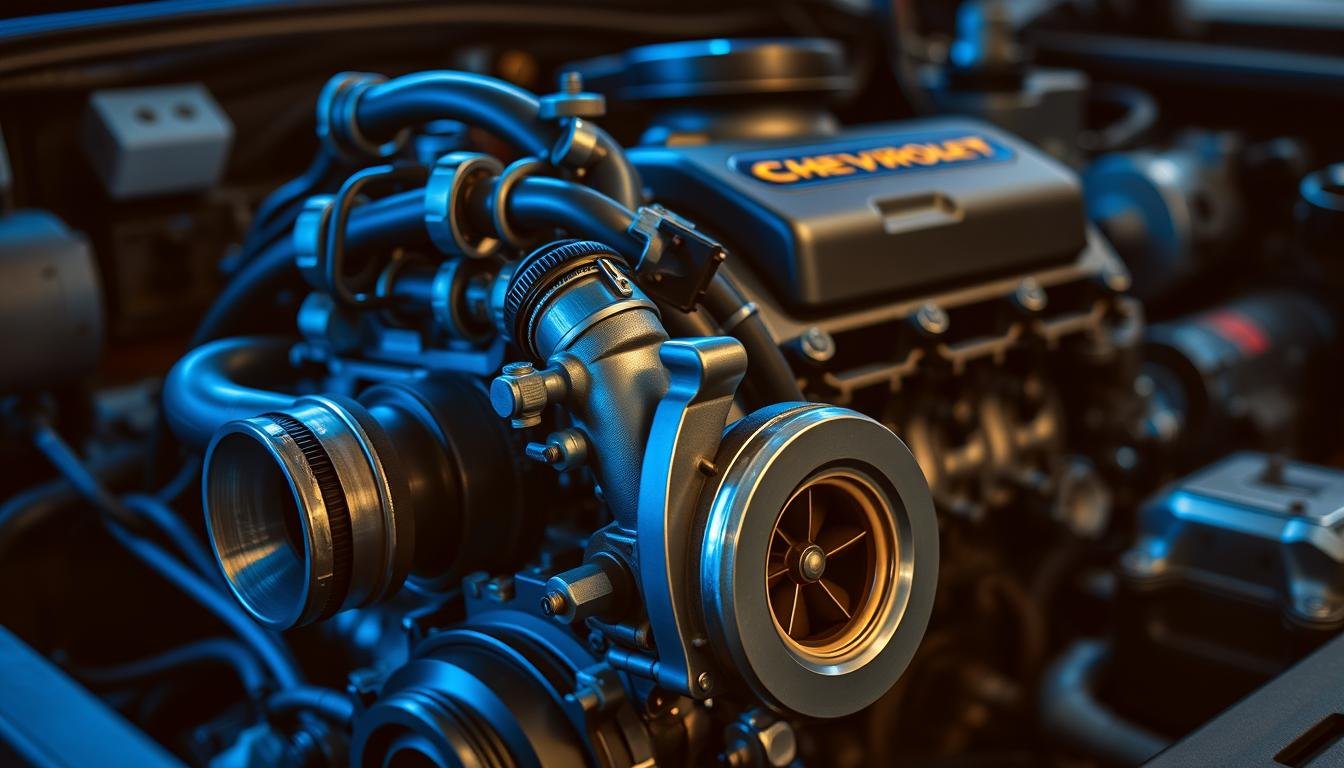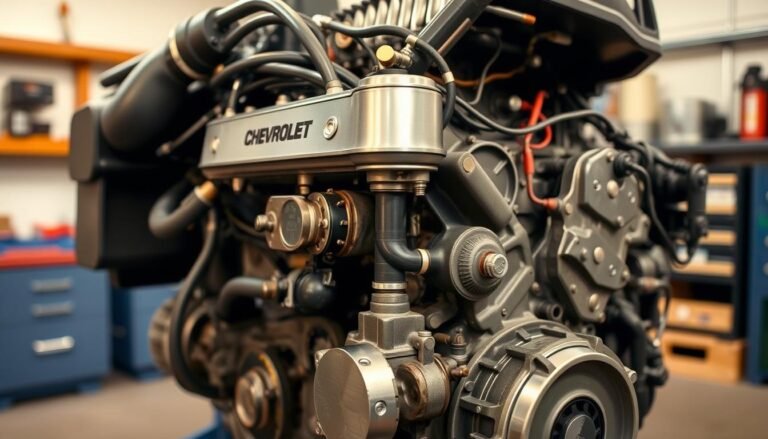Chevy 2.7 Turbo Problems: Common Issues Explained
The Chevy 2.7 turbo problems has some that can affect your car’s performance. Since 2019, the GM 2.7L turbocharger has been known for its power and efficiency.
However, owners have faced issues like AFM system failures, carbon buildup, and problems with injectors, the high-pressure fuel pump, and the turbocharger.
It’s important to fix these problems quickly for your engine to work well and last longer. In this guide, we’ll cover the typical issues with the Chevrolet turbo engine.
You’ll learn how to spot problems and find solutions. Knowing about these issues helps you take care of your Chevy’s 2.7 turbo engine.
Whether you’re fixing it yourself or just want to be informed, this guide will help you keep your car running well.
Introduction To The Chevy 2.7 Turbo Engine
The Chevrolet 2.7 Turbo is a turbocharged engine made by GM. It’s meant for those who want both power and fuel efficiency
This engine has a 2.7-liter capacity and produces 310 horsepower and 348 lb-ft of torque. It’s great for different driving needs, like towing and going off-road.
This engine boasts features like direct fuel injection and variable valve timing. These features improve fuel economy and ensure the engine can handle what truck owners need.
It also has an active thermal management system to keep the engine at the right temperature, which helps performance. Knowing these facts helps you understand what your vehicle can do.
Regular maintenance increases the engine’s lifespan and boosts performance. This means you’ll enjoy driving even more.
Common Chevy 2.7 Turbo Problems
Many drivers have faced issues with the Chevy 2.7 Turbo engine. This often relates to its high-tech nature. Some problems are small, but others can seriously affect how the car runs and its dependability.
Finding these problems early is key. Solving 2.7L turbo issues quickly helps the engine last longer.
Overview of Engine Issues
Owners have reported several common problems. These include issues with the AFM system, carbon buildup on intake valves, and troubles with fuel injectors.
There were also high-pressure fuel pump and turbocharger failures. Issues like these can lower the car’s performance. AFM system issues, for example, often lead to vibrations and a loss of power.
Importance of Addressing Problems Early
Fixing these issues early is crucial to stop major engine damage and costly repairs. Acting quickly means you can clean out carbon deposits or swap out bad parts.
Watching how your engine performs helps catch problems early. This way, your Chevy 2.7 Turbo stays reliable.
Active Fuel Management (AFM) System Failure
The Active Fuel Management system is key in making the AFM Chevy 2.7 Turbo more efficient. It lets the engine turn off some cylinders when you’re driving lightly. This change helps save gas, but if the system fails, it can cause big problems.
What is The AFM System?
This system works by turning off certain cylinders when they’re not needed. Normally, the engine uses all cylinders.
But to save fuel, it switches off some cylinders when full power isn’t required. This is great for anyone wanting to use less gas.
Symptoms of AFM Failure
It’s important to know the signs of AFM trouble to keep your car running well. Watch out for:
- Lower gas mileage
- Engine misfires
- Strange engine sounds
- Check engine light on
Ignoring these signs can lead to bigger engine issues and worse performance.
Potential Fixes For AFM Issues
If you’re having problems with your AFM system, there are a few things you can try:
- Reset the engine control module (ECM) to get rid of error messages.
- Check and replace any bad AFM parts like solenoids or lifters.
- Keep your oil in good shape and at the right level to avoid issues.
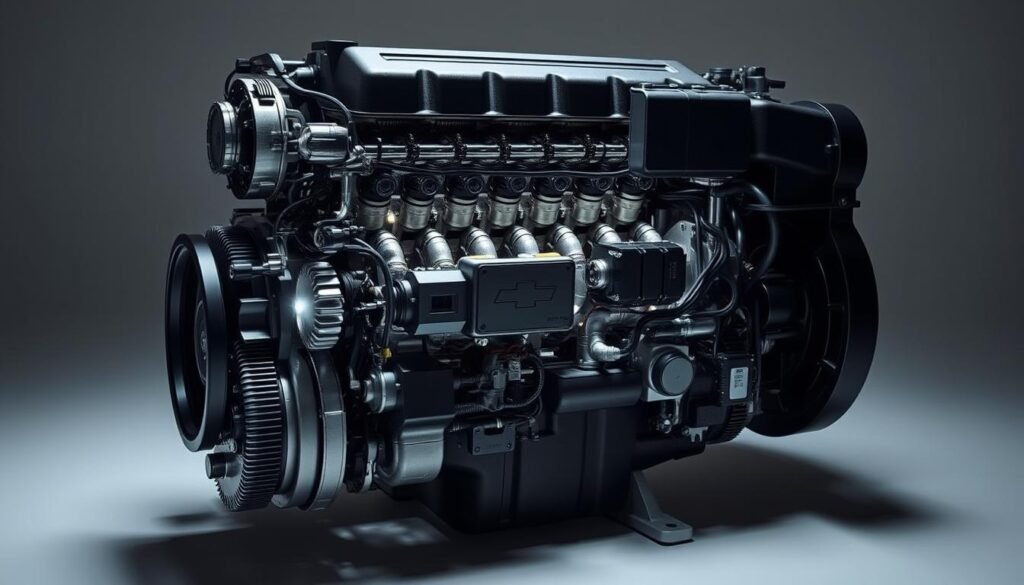
Carbon Buildup on Intake Valves
Owners of direct injection engines, like the Chevy 2.7 Turbo, face a big issue with carbon buildup. This occurs when carbon deposits land on the intake valves because the engine design lets fuel pass the valves.
Knowing about carbon accumulation can help you tackle potential problems effectively.
Learning Carbon Buildup
In these engines, the fuel goes straight into the combustion chamber, missing the intake valves. Without fuel wash, carbon deposits don’t get cleaned off as they would in other types of engines.
As time goes by, this carbon buildup can limit airflow and hurt the engine’s performance, causing a range of mechanical problems.
Causes of Carbon Accumulation
- Poor fuel quality, leading to incomplete combustion
- Waiting too long between oil changes, which causes oil residues
- Driving habits, like short trips that keep the engine too cool
- High mileage, which can wear down engine components
Signs of Carbon Buildup
Spotting carbon buildup signs early can help you protect your Chevy 2.7 Turbo. Look out for:
- Reduced engine power and slow acceleration
- Engine idling roughly or stalling
- Worse gas mileage, as the engine strains more
- Higher emissions, possibly failing tests

Injector Failure in The Chevy 2.7 Turbo
Fuel injectors are key in the Chevy 2.7 Turbo engine for putting the right amount of fuel in the combustion chamber. They’re vital for the engine to run well.
Problems with injectors can cause many performance issues. It’s important to spot these problems early.
Role of Injectors
Fuel injectors mix fuel and air precisely for the engine. This mixture makes sure the engine runs smoothly and efficiently.
A well-functioning injector means good acceleration and fuel economy. If there’s a problem, it might be the injector’s fault.
Symptoms of Failing Fuel Injectors
- Engine misfires or rough idling
- Decreased fuel efficiency
- Unusual exhaust emissions, including a strong smell of fuel
- Difficulty starting the engine
- Loss of power during acceleration
Spotting these symptoms early can help prevent damage to the engine and keep it running smoothly.
Solutions For Injector Problems
To fix injector issues, you might need to:
- Cleaning the Injectors: A pro can clean out carbon and debris.
- Replacing Faulty Injectors: If cleaning doesn’t help, new injectors might be needed.
- Regular Maintenance: Keeping up with maintenance helps avoid problems.
- Using Quality Fuel: Good fuel prevents injector issues. Always choose trusted brands.
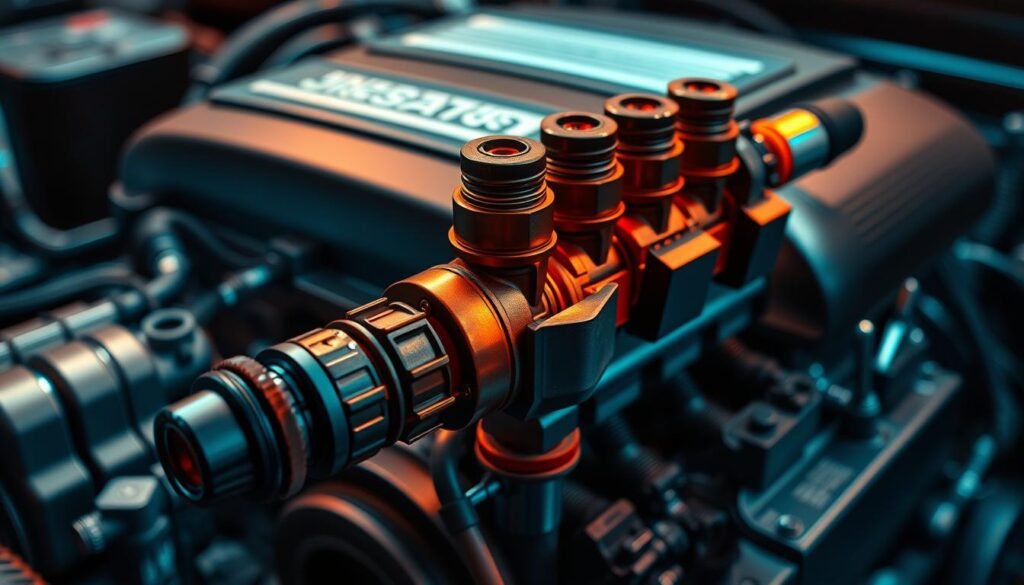
High-Pressure Fuel Pump (HPFP) Failure
The High-Pressure Fuel Pump is crucial for turbo engines like the Chevy 2.7 Turbo. It keeps fuel pressure right, affecting how well the engine works.
Spotting HPFP problems early helps avoid bigger damage and keeps engines running well.
What is HPFP?
The High-Pressure Fuel Pump is vital for your engine’s fuel system. It sends fuel under high pressure to the injectors, which is key for good combustion.
For the Chevy 2.7 Turbo, a working HPFP is a must for the power and efficiency you expect.
Signs of HPFP Issues
- Reduced engine power, especially during acceleration
- Difficulty starting the engine
- Increased fuel consumption
- Unusual noises from the fuel pump
- Check engine light activation
Preventive Maintenance For HPFP
To keep your Chevy 2.7 Turbo’s HPFP in good shape, focus on care. Check it often, use clean fuel, and change the fuel filter when you should.
This care helps stop problems with the High-Pressure Fuel Pump and keeps your engine at its best.
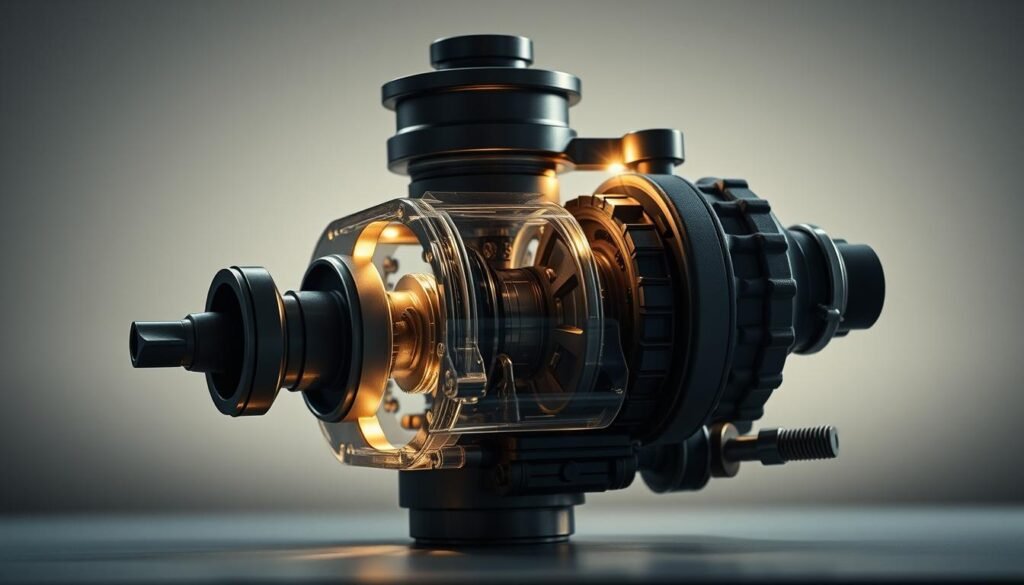
Turbocharger Issues in Chevy 2.7 Turbo Problems
The turbocharger boosts your Chevy 2.7 Turbo’s performance. Knowing common turbocharger problems helps you avoid big engine troubles. Spotting these issues early saves time and money.
Common Turbo Problems
Most turbocharger failures come from a few issues, like:
- Imeller damage
- Bearing wear
- Oil leaks
- Heat-related stress
Signs of Turbocharger Malfunction
It’s crucial to spot signs of turbo issues to keep your car running well. Watch out for:
- Less acceleration or power
- Odd whistling or whining sounds
- Leaks of oil or coolant
- A lot of exhaust smoke
Maintaining Turbo Performance
For a durable and efficient turbocharger, stick to these tips:
- Change oil regularly for less wear.
- Keep air filters clean for good airflow.
- Use a gauge to watch boost pressure.
- Check for exhaust leaks that could lower turbo power.
Keep an eye on turbo maintenance and know the warning signs. This way, you boost your Chevy 2.7 Turbo’s performance and dodge expensive turbocharger repairs.
Owner Experiences and Feedback
The Chevy 2.7 Turbo engine has mixed reviews. People are talking about it online, sharing what’s good and what’s not. Knowing what they say helps us understand if this engine is reliable and performs well.
Common Complaints From Chevy 2.7 Turbo Owners
Owners of the Chevy 2.7 Turbo have some issues with it. They talk about:
- Poor fuel economy that doesn’t match what they expected.
- Loud engine noises, like knocking, when it’s running.
- Problems with the turbocharger that lower the engine’s power.
- Injector failures causing the engine to stall or idle roughly.
- Performance that changes, especially with different ways of driving.
Positive Aspects of The Chevy 2.7 Turbo Engine
But, it’s not all bad. Some owners are really happy with the Chevy 2.7 Turbo. They like its:
- Quick acceleration, which makes driving exciting.
- Small design, making it a good fit for different Chevy cars.
- Smooth driving feel.
- Modern tech that makes the engine more efficient.
- Sturdy build that should last a long time.
Is There A Recall For Chevy’s 2.7 Turbo Engine?
Chevy has called back certain 2023 Chevy Silverado 1500 and Colorado models. This is due to major issues with the 2.7 Turbo engine.
These problems include cracks in the engine block and faulty fuel injectors. The defects can lower how well your vehicle runs. They might also cause it to not meet emissions standards.
To find out if your car is affected, check with your nearest Chevy dealer. You can also contact GM customer service.
They’ll use your car’s VIN to give you the latest on recalls. Knowing about recalls helps you act fast to protect your car and its performance.
Importance of Regular Maintenance
To keep your Chevy 2.7 Turbo engine running well, stick to a regular maintenance schedule. This effort is key in avoiding engine troubles and making your car last longer.
By keeping up with service times recommended by the manufacturer, you can catch and fix issues early, saving money on repairs.
Preventing Common Issues
Maintenance for the Chevy 2.7 Turbo targets problems like Active Fuel Management (AFM) failures, carbon buildup, and injector issues.
Getting your engine checked often reduces the chance of these problems happening. Catching issues early usually means they’re easier and cheaper to fix, so your engine stays in good shape.
Recommended Maintenance Practices
- Follow the service schedule outlined in your owner’s manual.
- Replace engine oil and filter regularly to ensure proper lubrication.
- Inspect and clean the air intake system to prevent blockages.
- Monitor and maintain the fuel system to avoid injector failures.
- Check the functionality of the AFM system periodically.
By following these maintenance tips, your Chevy 2.7 Turbo engine stays reliable. This keeps your car’s performance strong for years to come.
Conclusion
The Chevy 2.7 Turbo engine stands out for its performance and gas savings. However, it’s key to look out for problems it might have.
Quickly fixing issues like the AFM system breaking down, carbon piling up, and injector problems helps your engine last longer.
Catching these common problems early means you can fix them before they get worse. Getting your engine checked regularly is vital for its health.
These check-ups prevent big problems, like the fuel pump or turbocharger breaking. They also make sure your Chevy stays reliable. By keeping informed and proactive, your engine will run well for a long time.
FAQs
What are common issues reported with the Chevy 2.7 Turbo engine?
Owners often report problems like failures in the Active Fuel Management (AFM) system, carbon buildup, injector issues, issues with the high-pressure fuel pump (HPFP), and turbocharger problems.
How can I identify signs of Active Fuel Management (AFM) failure?
Look for signs like lower performance, rough idling, and decreased fuel mileage. Watching how the engine responds is crucial.
What are the consequences of carbon buildup on the 2.7 Turbo engine?
Carbon buildup can block airflow, lower engine power, cause rough idles, and decrease fuel mileage. This needs quick cleaning or fixes.
How significant is injector failure in the Chevy 2.7 Turbo?
Injector issues can cause misfires and rough engine operation. This greatly affects how the engine performs and its fuel efficiency.
What should I look for to identify HPFP issues?
HPFP issues show as starting troubles, weak acceleration, and low fuel pressure. These problems can hurt your vehicle’s performance.
How can turbocharger problems affect the Chevy 2.7 Turbo’s performance?
Problems with the turbocharger can reduce boost pressure and lower engine power. This is often because of damaged impellers or oil leaks.
Are there any recalls for the Chevy 2.7 Turbo engine?
Yes, 2023 models like the Chevy Silverado 1500 and Colorado were recalled due to cracked engine blocks and faulty fuel injectors. Always check with a dealer for your vehicle’s specifics.
What maintenance practices can help prevent issues with the Chevy 2.7 Turbo?
Keeping up with scheduled services recommended by the manufacturer is key. It helps avoid problems like AFM issues, carbon buildup, and injector troubles.

